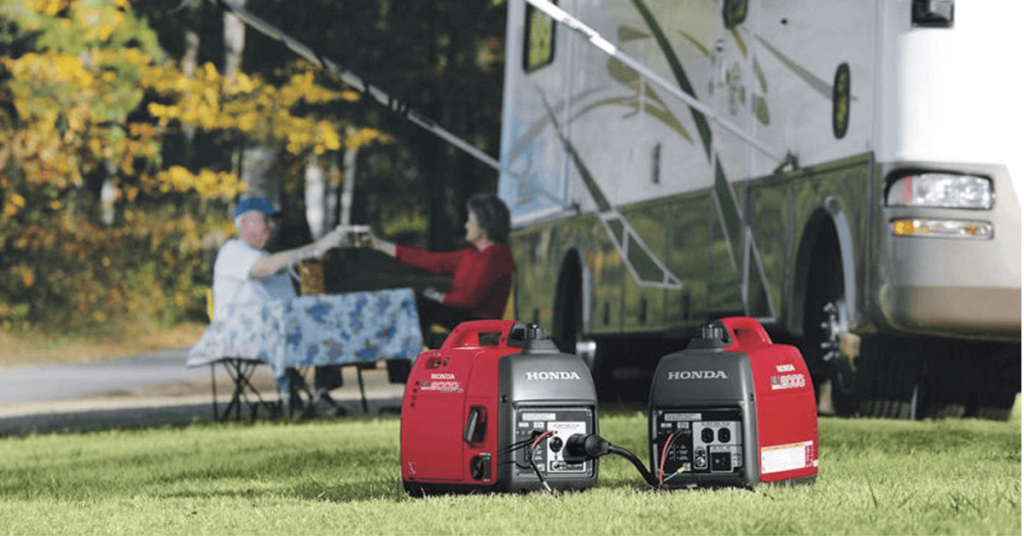Storms and other natural disasters can cause power outages, leaving you without electricity for days or even weeks. A generator can provide you with reliable power during these times, but it’s essential to choose the right generator for your needs. In this article, we will discuss how to choose the right generator for your storm season.

Why Do I Need A Generator For Storm Season?
During storm season, power outages are common due to severe weather conditions like hurricanes, tornadoes, and thunderstorms. Having a generator can provide you with a reliable backup power source to keep your home running and ensure your safety during these times.
What Are The Different Types Of Generators Available For Storm Season?
There are several types of generators available for storm season, including portable generators, standby generators, and inverter generators. Each type has its own unique features and benefits, so it’s important to understand which type is best for your needs.
What Wattage Do I Need For My Generator During Storm Season?
The wattage you need for your generator during storm season will depend on your power needs. Consider which appliances and devices you need to power during an outage, and choose a generator with a wattage output that meets those needs.
How Do I Determine The Runtime For My Generator During Storm Season?
The runtime of your generator will depend on the size of the fuel tank and the wattage output of the generator. You can calculate the approximate runtime by dividing the fuel tank capacity by the fuel consumption rate, which can be found in the manufacturer’s specifications.
What Safety Features Should I Look For In A Generator For Storm Season?
When choosing a generator for storm season, look for safety features such as automatic shut-off in case of low oil or fuel, overload protection, and GFCI outlets to prevent electrical shock.
How Do I Properly Install And Connect My Generator During Storm Season?
It’s important to follow the manufacturer’s instructions for proper installation and connection of your generator during storm season. This may involve hiring a licensed electrician to ensure proper wiring and grounding, as well as installing a transfer switch to prevent back feeding into the utility grid.
How Do I Choose The Right Generator Size For Ny Home During Storm Season?
To choose the right generator size for your home during storm season, you’ll need to consider your power needs and calculate the total wattage required. This may involve prioritizing essential appliances and devices and choosing a generator with a wattage output that meets those needs.
How Do I Properly Maintain My Generator During Storm Season?
Regular maintenance is important for the longevity and reliability of your generator during storm season. This may involve changing the oil, checking the air filter, and inspecting the spark plug. It’s also important to store your generator in a safe, dry place when not in use.
What Should I Do In Case My Generator Fails During Storm Season?
If your generator fails during storm season, it’s important to have a backup plan in place. This may involve having alternative power sources like batteries or solar-powered chargers, as well as having an emergency supply of food, water, and medical supplies on hand. It’s also a good idea to have a backup generator or backup power source in case of emergencies.
What Type Of Fuel Should I Use For My Generator During Storm Season?
Different generators may require different types of fuel, such as gasoline, diesel, or propane. Consider which type of fuel is easiest for you to obtain and store during storm season, and choose a generator that uses that type of fuel.
Determine Your Power Needs
The first step in choosing the right generator for your storm season is to determine your power needs. Make a list of all the appliances and devices you plan on powering with your generator during a power outage. Add up the wattage of each item to determine the total wattage required. This will help you choose a generator with the right wattage output.
Choose The Right Type Of Generator
There are two main types of generators: portable and standby. Portable generators are typically smaller and can be moved from one location to another, while standby generators are larger and permanently installed. Standby generators are more expensive but provide more power and can automatically turn on during a power outage. For storm season, a portable generator is usually sufficient.
Consider The Fuel Source
Generators can run on several different types of fuel, including gasoline, propane, and diesel. Gasoline is the most common fuel source for portable generators, but propane and diesel can provide longer run times and are safer to store. Consider which fuel source is the most practical for your needs.
Wattage Output
The wattage output of a generator is the amount of power it can provide. Consider the total wattage required for the appliances and devices you plan on power during a power outage, and choose a generator with a wattage output that exceeds that number. It’s always better to have more power than you need than not enough.
Noise Level
Generators can be noisy, which can be a problem if you live in a residential area. Look for generators with a low decibel rating, usually below 70 decibels, which is the noise level of a normal conversation. Inverter generators are generally quieter than conventional generators.
Run Time
The run time of a generator is the amount of time it can run continuously before it needs to be refueled. Look for a generator with a run time that is sufficient for your needs. Some generators have a fuel-efficient mode that can extend the run time.
Portability
Portability is an important factor to consider if you plan on using your generator in different locations. Look for a generator that is lightweight and has wheels for easy transportation.
Safety Features
Generators can be dangerous if not used correctly. Look for generators with safety features such as low oil shutdown, circuit breakers, and ground fault circuit interrupters (GFCIs) to protect against electrocution.
Price
Generators can range in price from a few hundred dollars to several thousand dollars. Consider your budget and choose a generator that provides the features you need within your price range.
Maintenance
Regular maintenance is essential to ensure that your generator is always ready when you need it. Follow the manufacturer’s maintenance schedule, keep your generator clean, and store it properly when not in use.
FAQs: How To Choose The Right Generator For Your Storm Season
How do I know what size generator I need for my home during a storm?
To determine what size generator you need for your home during a storm make a list of all the appliances and devices you plan on powering during a power outage. Add up the wattage of each item and choose a generator with a wattage output that exceeds that number. It’s always better to have more power than you need than not enough.
How often should I run my generator during storm season?
It’s recommended to run your generator for at least 30 minutes every month to ensure that it’s in good working condition. During storm season, it’s a good idea to run your generator once a week to ensure that it’s always ready when you need it.
Can I use a portable generator during a storm?
Yes, you can use a portable generator during a storm, but it’s important to use it safely. Keep the generator at least 10 feet away from your home, and never operate it indoors or in an enclosed space.
Can I connect my portable generator directly to my home’s electrical panel?
No, it’s not safe to connect a portable generator directly to your home’s electrical panel. This can cause back feeding, which can be dangerous to utility workers and damage your generator. Instead, use a transfer switch to connect your generator to your home’s electrical panel.
How often should I change the oil in my generator?
Check the manufacturer’s recommendations for the recommended oil change intervals for your specific generator. In general, it’s recommended to change the oil after the first 8-10 hours of use and then every 50-100 hours of use thereafter.
Conclusion:
Choosing the right generator for your storm season is essential to ensure that you have reliable power during a power outage. Consider your power needs, the type of generator, fuel source, wattage output, noise level, run time, portability, safety features, and price when choosing a generator. Regular maintenance is essential to ensure that your generator is always ready when you need it.




